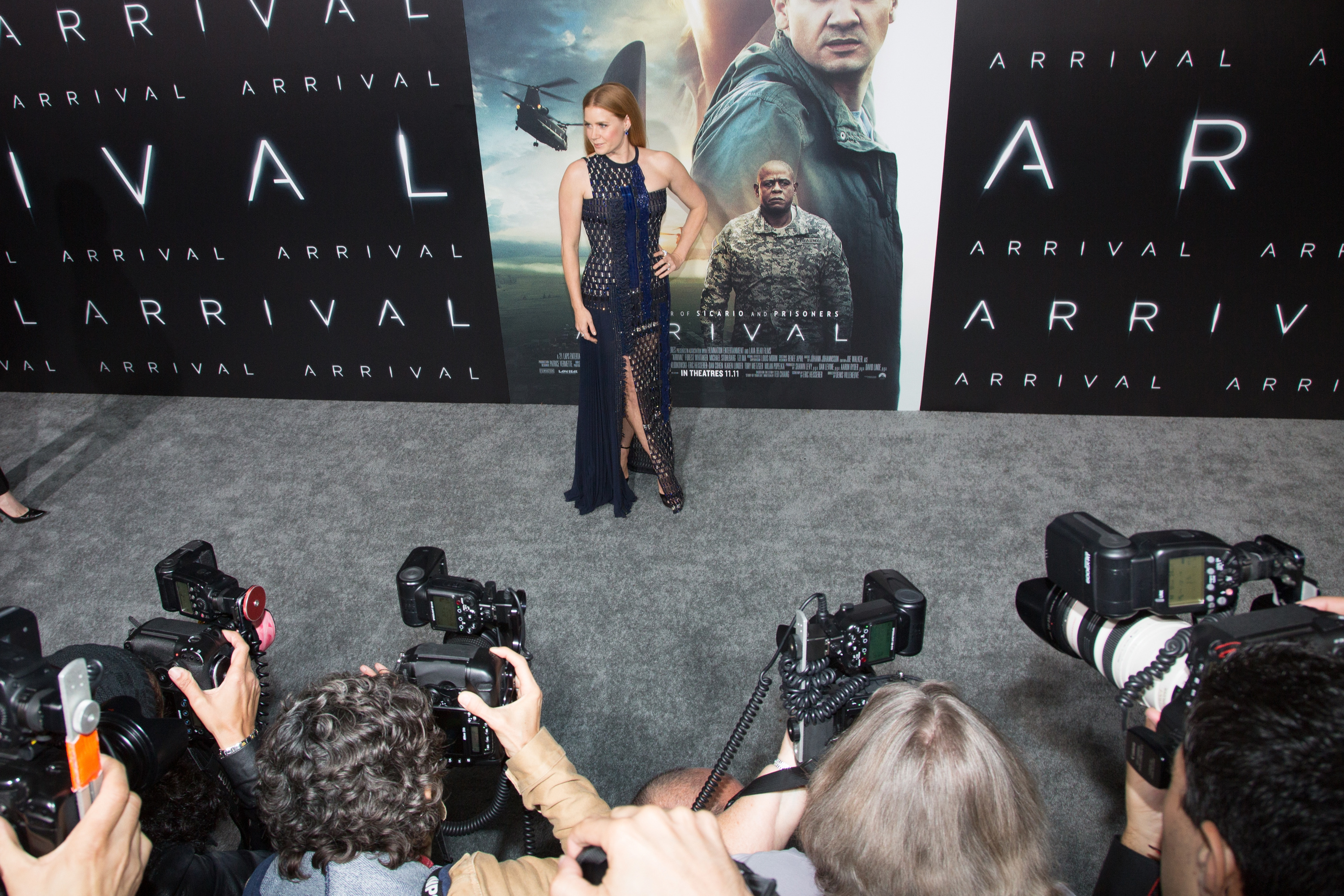
by Frankie TAGGART
LOS ANGELES, United States (AFP) — Are we alone in the universe? It is a question that has preoccupied filmmakers since “A Trip to the Moon” announced itself as the world’s first alien movie in 1902.
In the century or so following the 17-minute silent French film, Hollywood’s extraterrestrials have visited in all shapes and sizes, from threatening tripods and genocidal lizards to benign humanoids.
While these films have traditionally been effects-laden potboilers, a subgenre of cerebral, lower budget movie has quietly insinuated itself into the mainstream.
Leading the charge this year is Canadian director Denis Villeneuve’s “Arrival,” which hits theaters on Friday following a Golden Lion nomination at the Venice Film Festival and tips for Oscar success.
Taking its cue from classics such as “Close Encounters of the Third Kind” (1977) and “Contact” (1997), “Arrival” challenges the notion that alien visitation equals loud, expensive armageddon.
Villeneuve, the director of “Sicario” (2015) and next year’s much-anticipated sequel to iconic sci-fi favorite “Blade Runner,” does not stint on the spaceships and extraterrestrials.
But he uses them in the service of such weighty ontological and epistemological themes as the nature of space-time, how language and memory work, and what happens when you cannot communicate.
“There will always be trends in movies but I believe people are — I don’t want to say bored — but less enamored by gigantic visual effects driven films,” says “Arrival” producer Aaron Ryder.
“I also think that there may be, perhaps, a little bit of fatigue within the superhero genre. You wouldn’t be able to tell by the box office but I think there is.”
‘Anti-Independence Day’
Ryder may be thinking of “Batman v Superman: Dawn of Justice,” which delighted the accountants at Warner Bros. earlier this year but was panned by the critics.
Amy Adams, one of the stars in the film, takes the lead role in “Arrival” as Louise Banks, a linguist enlisted by the army after alien pods pop up worldwide, to help figure out what their “heptapod” occupants want.
The global powers argue among themselves and a group of nations led by China decides that in order to save humanity they should blow these gentle, enormous creatures out of the sky.
It’s up to Banks, a mother who has loved and lost, to put her life on the line by reaching out to the extraterrestrials.
The picture pairs Adams with fellow “American Hustle” star Jeremy Renner, playing against type as a shy, soft-spoken mathematician in a generous performance that allows his co-star space to shine.
In placing a mother-daughter relationship at the heart of its narrative, “Arrival” packs an emotional punch rarely seen in the sterile, utilitarian milieu of the sci-fi blockbuster.
Critics agree that it is more a cultural cousin of “Interstellar” and “Under the Skin” than big, dumb alien invasion blockbusters like “Independence Day: Resurgence.”
Based on Ted Chiang’s short “Story of Your Life,” it has been described as “the anti-Independence Day” by the Hollywood Reporter.
‘Touching story’
“It was such an important and touching story for me when I read it and I’m just glad that has translated to the big screen,” Adams told reporters at the film’s Los Angeles premiere on Sunday.
The 42-year-old five-time Oscar nominee said the film reminded her of the value of “life, all life, my daughter’s life, our relationship, communication.”
Set in Montana, “Arrival” was filmed in Villeneuve’s native Quebec for a reported $50 million — a small budget for a leading sci-fi movie.
David Linde, a co-producer with Ryder and Dan Levine, said his team and the director set out from the start to make a film that felt “really distinct,” despite the familiar genre.
“I’d like to believe certainly that people who perhaps just want to go to the movies on a Saturday afternoon and have popcorn are going to be really entertained,” he said.
But he added that the emotional heart of the film ought to be particularly resonant in a year which has seen Brexit, a divisive US election and a resurgence of the Syrian refugee crisis.
“These are all serious issues and at their core if we could communicate better about them, with each other, I think probably they would feel less contentious and less scary,” he said.
© 1994-2016 Agence France-Presse








